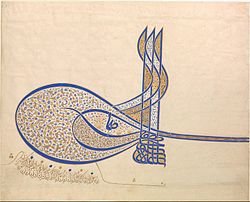Introduction
This section needs additional citations for verification .(December 2011) |
Languages of Turkic peoples left numerous traces in different languages, including the English language. Turkic borrowings, which belong to the social and political vocabulary, are generally used in special literature and in the historical and ethnographical works, which relate to the life of Turkic and Muslim peoples. The ethnographical words are generally used in the scientific literature, and in the historical and ethnographical texts.
The adoption of Indian (principally Hindustani) words, among which there were some Turkic borrowings, became one of the ways for the words of the Turkic origin to penetrate English. Additionally, several words of Turkic origin penetrated English through Central or Eastern European languages like Russian and Polish. Albanian, German, Latin, Spanish, Italian, French, Hungarian and Serbo-Croatian were also intermediary languages for the Turkic words to penetrate English, as well as containing numerous Turkic loanwords themselves (e.g. Serbo-Croatian contains around 5,000 Turkic loanwords, primarily from Turkish [1] ).
In the nineteenth century, Turkic loanwords, generally of Turkish origin, began to penetrate not only through the writings of the travelers, diplomats and merchants, and through the ethnographical and historical works, but also through the press. In 1847, there were two English-language newspapers in Istanbul – The Levant Herald and The Levant Times, seven newspapers in French, one in German and 37 in Turkish. Turkish contributed the largest share of the Turkic loans, which penetrated into the English directly. This can be explained by the fact that Turkey had the most intensive and wide connections with England. Nevertheless, there are many Turkic loans in English, which were borrowed by its contacts with other peoples – Azerbaijanis, Tatars, Uzbeks, Kazakhs and Kirghiz.

Most of the Turkic loans in English carry exotic or ethnographical connotations. They do not have equivalents in English, do not have synonymic relations with primordial words, and generally are used to describe the fauna, flora, life customs, political and social life, and an administrative-territorial structure of Turkic regions. But there are many Turkic loans, which are still part of the frequently used vocabulary. Some Turkic loans have acquired new meanings, unrelated to their etymology.
To conclude, the words of the Turkic origin began penetrating English as early as the Middle Ages, the Turkic loanwords found their way into English through other languages, most frequently through French. Since the 16c, beginning from the time of the establishment of the direct contacts between England and Turkey, and Russia, in English appeared new direct borrowings from Turkic languages. German, Polish, Russian, Serbo-Croatian, French, Arabic, Armenian, Afrikaans, Hungarian, Yiddish, Hindustani, Spanish, Italian, Latin, Malayan, to a different extent, took part in the process of the transfer of the Turkic words into English. The main language from which the borrowings were made, was Turkish.








